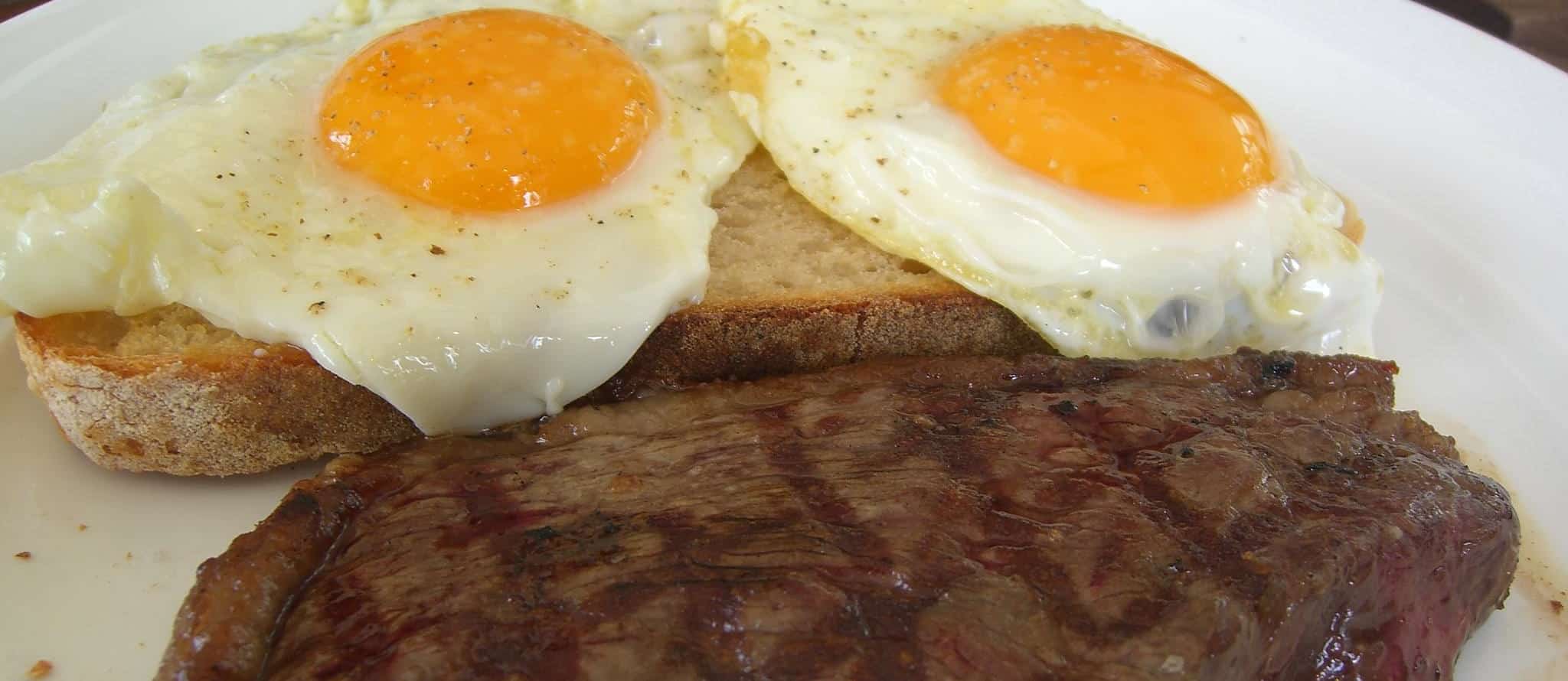A landmark study in the New England Journal of Medicine shows that choline in eggs, poultry, dairy and fish produces the same toxic TMAO as carnitine in red meat, which may help explain plant-based protection from heart disease.
Earlier this year, a research team at the Cleveland Clinic offered another explanation as to why meat intake may be related to mortality (see, for example, Harvard’s Meat and Mortality Studies). They noted that “Numerous studies have suggested a decrease in atherosclerotic disease risk [our number 1 killer] in vegan and vegetarian individuals compared to omnivores,” but reduced intake of dietary cholesterol and saturated fat may not be the full story. The researchers found that within 24 hours of carnitine consumption—eating a sirloin steak, taking a carnitine supplement—certain gut bacteria metabolize the carnitine to a toxic substance called trimethylamine, which then gets oxidized in our liver to TMAO, trimethylamine-n-oxide, which then circulates throughout our bloodstream. There’s a diagram in my 9-min video Carnitine, Choline, Cancer and Cholesterol: The TMAO Connection.
The way we know it’s the gut bacteria is that if you give people antibiotics to wipe out their friendly flora, you can apparently eat all the steak you want without making any TMAO, but then if you wait a couple weeks until your gut bacteria grows back, you’re back to the same problem.
What’s so bad about this TMAO stuff? It appears to increase the buildup of cholesterol in the inflammatory cells in the atherosclerotic plaques in our arteries, increasing our risk of heart attack, stroke, and death. The role of these inflammatory “foam” cells (so-called because they’re so packed with cholesterol they look foamy under a microscope) is explained in my video series that starts with Arterial Acne and Blocking the First Step of Heart Disease.
What does carnitine do? It’s involved in energy production in the mitochondria (“power plants”) in our cells. The enzyme that uses carnitine to help us burn fat, carnitine palmitoyl transferase, is actually upregulated by about 60 percent in those eating meat-free diets, which may help explain why those eating plant-based diets tend to be slimmer.
How do we keep carnitine away from our gut bacteria? Well there’s zero dietary requirement; our body normally makes all that we need. The problem is that the bodies of other animals also make all that they need so when we eat them, their carnitine can end up in our gut for those bacteria to feast upon, resulting in TMAO.
Some animals make more carnitine than others. Carnitine is concentrated in red meat, and so this new body of research has led to recommendations to decrease red meat consumption as well as avoid carnitine-containing supplements and energy drinks.
What most media reports missed, though, is that gut bacteria can turn the choline found in eggs, poultry, fish, dairy, and lecithin supplements into TMAO too. So it’s not just a problem with red meat. The good news is that this may mean a new approach to prevent or treat heart disease: “The most obvious is to limit dietary choline intake.” But if that just means decreasing egg, meat and dairy consumption, the “new” approach sounds just like the old approach.
Unlike carnitine, we do need to take in some choline, so should vegans be worried about the modest amounts of choline they’re getting from beans, veggies, grains, and fruit? And same question with carnitine. There’s a small amount of carnitine found in fruits, veggies, and grains as well. Of course it’s not the carnitine itself we’re worried about, but the toxic TMAO, and you can feed a vegan a steak without getting a TMAO spike. Literally. The researchers convinced a long-time vegan to eat an 8-ounce sirloin, in the name of science. The vegan got the whopping carnitine load, but hardly any TMAO was produced. Apparently, the vegans don’t develop those TMAO-producing bacteria in their gut, and why would they?
It’s like the whole prebiotic story I detail in videos like Boosting Good Bacteria in the Colon Without Probiotics. When we eat a lot of fiber, we select for fiber-munching bacteria, and some of the compounds they make with fiber are beneficial, like the propionate that appears to have an anti-obesity effect I explored in Fawning Over Flora. It seems that if we eat a lot of animal products we may instead be selecting for animal-munching bacteria, and some of those waste products—like the trimethylamine—may be harmful.
-Michael Greger, M.D.
PS: If you haven’t yet, you can subscribe to my videos for free by clicking here and watch my full 2012 – 2015 presentations Uprooting the Leading Causes of Death, More than an Apple a Day, From Table to Able, and Food as Medicine.
